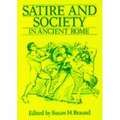Phlegon of Tralles' Book of Marvels: Exeter Studies in History
Traducere de William Hansenen Limba Engleză Paperback – 31 dec 1996
The Book of Marvels, a compilation of marvellous events of a grotesque, bizarre or sensational nature, was composed in the second century A.D. by Phlegon of Tralles, a Greek freedman of the Roman emperor Hadrian. This remarkable text is the earliest surviving work of pure sensationalism in Western literature.
The Book is arranged thematically: Ghosts; Sex-Changers and Hermaphrodites; Finds of Giant Bones; Monstrous Births; Births from Males; Amazing Multiple Births; Abnormally Rapid Development of Human Beings; Discoveries of Live Centaurs. This volume also contains and Introduction and commentary on the texts, as well as translations of fragments of two other works and a translation of Goethe's well-known vampire poem, The Bride of Corinth, which was inspired by Phlegon's Book of Marvels.
Din seria Exeter Studies in History
-
 Preț: 185.33 lei
Preț: 185.33 lei -
 Preț: 182.27 lei
Preț: 182.27 lei -
 Preț: 335.85 lei
Preț: 335.85 lei -
 Preț: 348.38 lei
Preț: 348.38 lei -
 Preț: 254.68 lei
Preț: 254.68 lei -
 Preț: 185.62 lei
Preț: 185.62 lei -
 Preț: 206.49 lei
Preț: 206.49 lei -
 Preț: 260.64 lei
Preț: 260.64 lei -
 Preț: 179.90 lei
Preț: 179.90 lei -
 Preț: 237.15 lei
Preț: 237.15 lei -
 Preț: 483.89 lei
Preț: 483.89 lei -
 Preț: 344.74 lei
Preț: 344.74 lei -
 Preț: 430.27 lei
Preț: 430.27 lei -
 Preț: 461.95 lei
Preț: 461.95 lei -
 Preț: 395.28 lei
Preț: 395.28 lei -
 Preț: 284.73 lei
Preț: 284.73 lei -
 Preț: 301.98 lei
Preț: 301.98 lei -
 Preț: 286.09 lei
Preț: 286.09 lei -
 Preț: 368.36 lei
Preț: 368.36 lei -
 Preț: 329.89 lei
Preț: 329.89 lei -
 Preț: 456.96 lei
Preț: 456.96 lei -
 Preț: 344.86 lei
Preț: 344.86 lei -
 Preț: 339.35 lei
Preț: 339.35 lei -
 Preț: 381.50 lei
Preț: 381.50 lei
Preț: 202.99 lei
Nou
Puncte Express: 304
Preț estimativ în valută:
38.84€ • 40.64$ • 32.27£
38.84€ • 40.64$ • 32.27£
Carte disponibilă
Livrare economică 12-26 martie
Livrare express 26 februarie-04 martie pentru 20.43 lei
Preluare comenzi: 021 569.72.76
Specificații
ISBN-13: 9780859894258
ISBN-10: 0859894258
Pagini: 256
Ilustrații: index
Dimensiuni: 206 x 147 x 20 mm
Greutate: 0.27 kg
Ediția:1
Editura: Liverpool University Press
Colecția Liverpool University Press
Seria Exeter Studies in History
Locul publicării:United Kingdom
ISBN-10: 0859894258
Pagini: 256
Ilustrații: index
Dimensiuni: 206 x 147 x 20 mm
Greutate: 0.27 kg
Ediția:1
Editura: Liverpool University Press
Colecția Liverpool University Press
Seria Exeter Studies in History
Locul publicării:United Kingdom
Notă biografică
William Hansen is Professor of Classical Studies and Folklore at Indiana University, Bloomington, USA. He is an expert on Greek and Roman folklore and the leading Phlegon specialist in the English-speaking world.
Cuprins
1. Introduction
PART I-TEXTS
2. Book of Marvels
3. Long-Lived Persons
4. Olympiads
PART II- COMMENTARIES
5. Book of Marvels
6. Long-Lived Persons
7. Olympiads
Appendices:
1. Proklos: Persons Who Died and Returned to Life
2. Goethe: The Bride of Corinth, trans. Breon Mitchell
3. Philostratos: Achilleus' Ghost and the Trojan Maiden
Recenzii
“Not only does this book contain a good translation of Phlegon’s Book of Marvels, but Hansen has also added translations of fragments of two other works by Phlegon, Olympiads (recounting the foundation of the Olympic Games), and Long-Lived Persons (which uses Roman census documents). As such we get a truly representative feel for the literary output of this Greek freedman which certainly seems to have had an eager market . . . Hanson’s commentary is superb for a book of the scale of the Exeter Studies in History series. Each section is sanely analysed, with references to the Greek vocabulary chosen, parallel versions and their differences, and helpful modern bibliography. The commentary makes interesting reading and reminds one of how immensely popular such collections were in the early empire. . . Exeter University Press are to be commended for supporting the publication of what might appear at first sight a risky text with limited appeal. I trust that its affordability and clear presentation will garner it wider attention.” –Classical Review, Vol xlIx no 2. 1999
“Characteristic of Hansen's work is not only that he places Phlegon's efforts in the context of the literature of the Roman empire, but also that he compares the reports by this author with similar miraculous reports from later, even modern times. . . Hansen has put us in his debt by making this neglected material accessible in such a convenient way.” –Mnemosyne, Vol. LII, 1999
“Within the relics of paradoxography, the fragments of Phlegon of Tralleis, a freedman of the emperor Hadrian, are untypical and, for that very reason, of uncommon interest. William Hansen has done a valuable service in placing them within easy reach of the Greekless reader or student toiling in either of the neighbouring fields...anyone who needs to know about Phlegon has no hesitation in acquiring this handsomely produced and reasonably priced book...It is exactly the kind of resource needed to introduce students to the intriguing margins of ancient historiography.” –Histos, 1998
“At a time when the study of marginality is popular, this book gives insight into ancient forerunners of the literary freak-show . . . The delight in the violation of the natural order in The Book of Marvels is kept within decent bounds by the sense that, although inexplicable, the monstrous can be deciphered, often to the benefit of the community.” –Times Literary Supplement, August 22, 1997
“Some books have a headstart in being welcome simply for their existence and Hansen's text and accompaniments belong in that category.” –Bryn Mawr Classical Review, 1997
